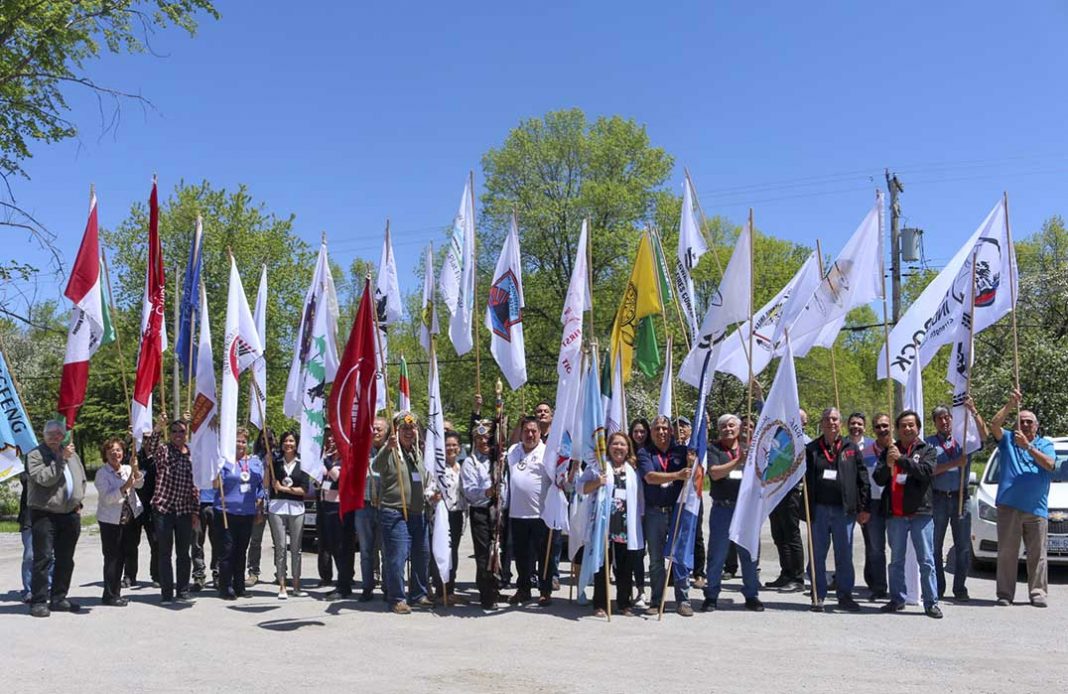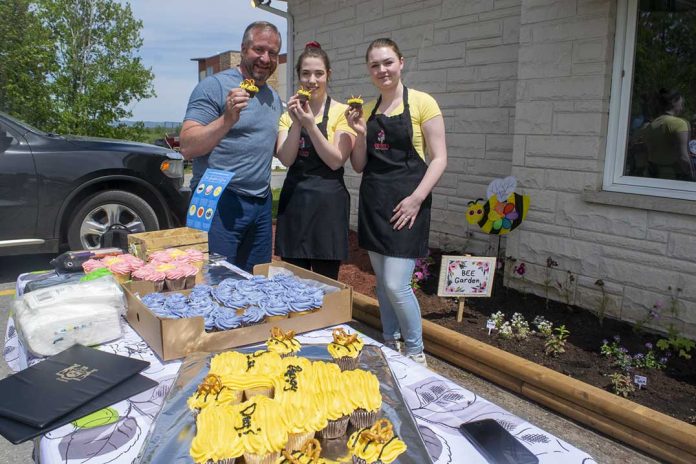GEORGINA ISLAND – Anishinabek Nation Grand Council Chief Glen Hare has been watching the milestones flick by on the road to the Anishinabek finally gaining control over child welfare in their communities. One of those milestones took place at the Anishinabek Nation Grand Council Assembly meeting hosted by the Chippewas of Georgina Island last week.
The Anishinabek Nation’s Social Development Department launched Koganaawsawin, a central body supporting the Anishinabek Nation Child Well-Being Law during the assembly, where Grand Council Chief Hare said it was well received. “Everyone is very excited about it,” he said. “Now it goes back to the communities to be voted on.”
According to an Anishinabek Nation press release, the launch was held as a celebration of the work that the Anishinabek Nation technicians and Child Well-Being Law Working Group members started in collaboration with the federal and provincial governments “to support the opportunities for success in addressing development priorities for Anishinabek children, youth and families.”
“This is so awesome for our kids,” said Grand Council Chief Hare. “The Anishinabek approach to child and youth well-being and unity is premised on the principles of wellness, healing and family unity. We hope that Canada and Ontario will continue to support not only our kids, but all kids, youth and families in Ontario through effective programs and services.”
The law is an exercise of the Anishinabek First Nations’ inherent right and jurisdiction over child and youth well-being and child welfare. Each Anishinabek First Nation has the authority to enact the law for their citizens.
“We all have to take control of looking after our children,” said Grand Council Chief Hare. He pointed out that the Children’s Aid Society “kicks kids out when they turn 18; they are on their own. They don’t have information even on where they come from. I think it is even earlier than that, like 16, you are on your own. We as Anishinabe people don’t operate that way. Nobody has age limits except the Society.”
Grand Council Chief Hare said that he takes time to talk to the Anishinabe youth on the streets each time he goes to Toronto. “I ask them why they don’t go home,” he said. “Often the answer is that they do not have the money to go home. They don’t have enough money for a bus ticket.” For many of the young people he meets there is no family history on which to build a relationship in their home communities. “They don’t know anything about where they come from,” he said, adding that he looks forward to the day the Anishinabe have complete control over their children’s wellbeing.
“We would like to acknowledge the ongoing support from the Province of Ontario and the Government of Canada,” said Adrienne Pelletier, director of the Social Development Department at the Anishinabek Nation. “We have a sacred duty to ensure the well-being of our people. At this point in time, 19 Anishinabek First Nations have taken the initial steps to create a new reality for our children, youth and families.”
Following a sunrise ceremony with Anishinabek Nation Head Getzit (elder) Gordon Waindubence, the launch of Koganaawsawin began with ‘Biinojiiyag,’ a ceremonial prayer song for Anishinabek children sung by The Raindance Singers.
Presentations with the remaining Anishinabek First Nations will continue to be co-ordinated in hopes that more communities, with the support of Koganaawsawin, will choose to enact and implement the Anishinabek Nation Child Well-Being Law.
“At the end of the day it always goes back to the people in the communities,” said Grand Council Chief Hare. “It is their children and they will make the decisions.”




